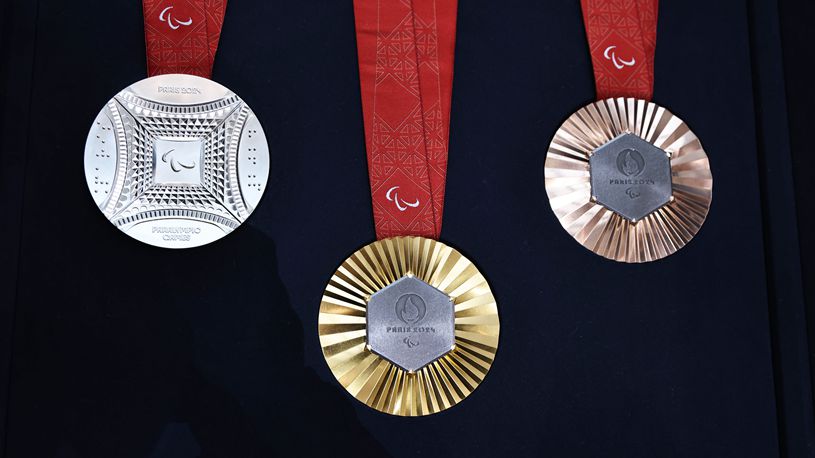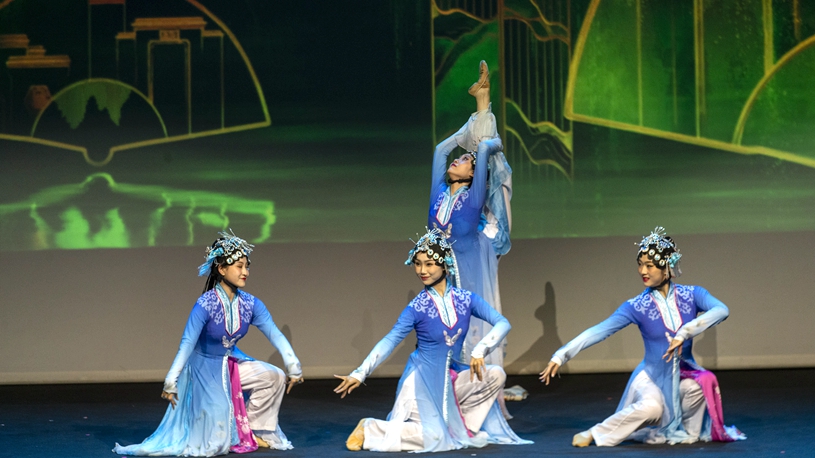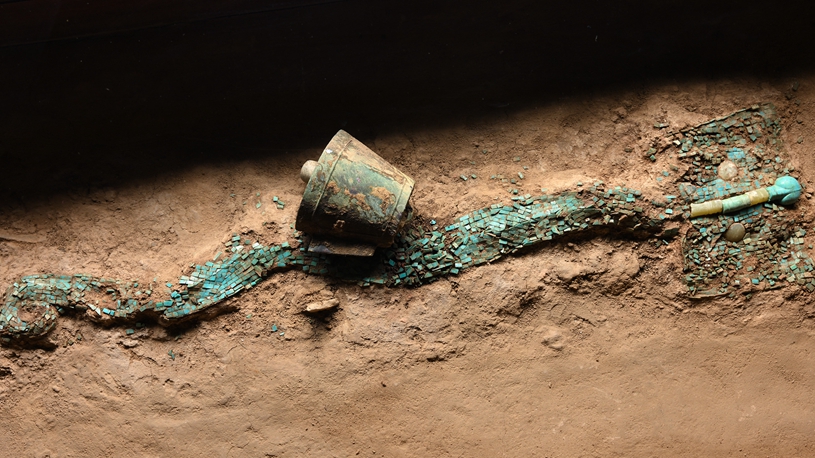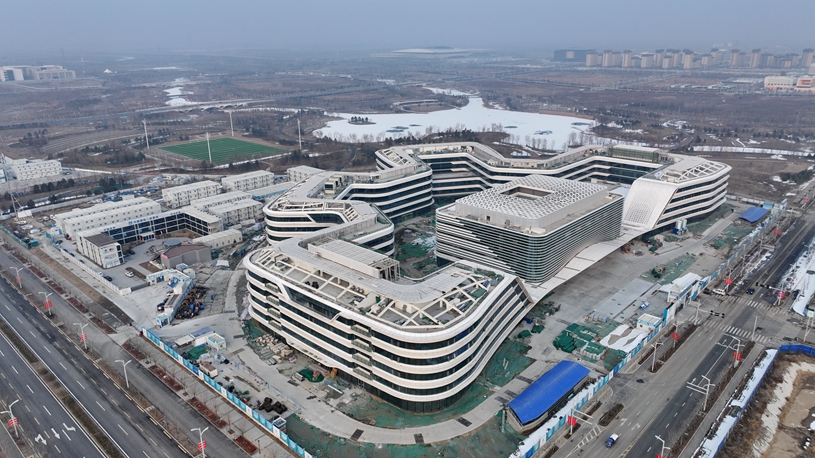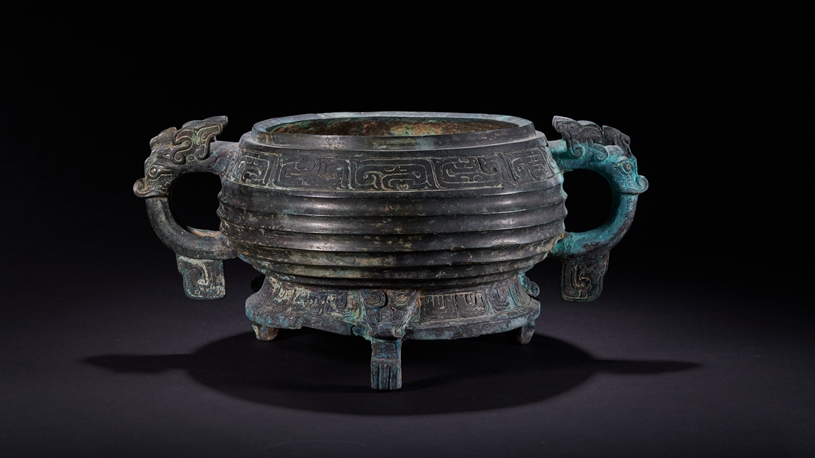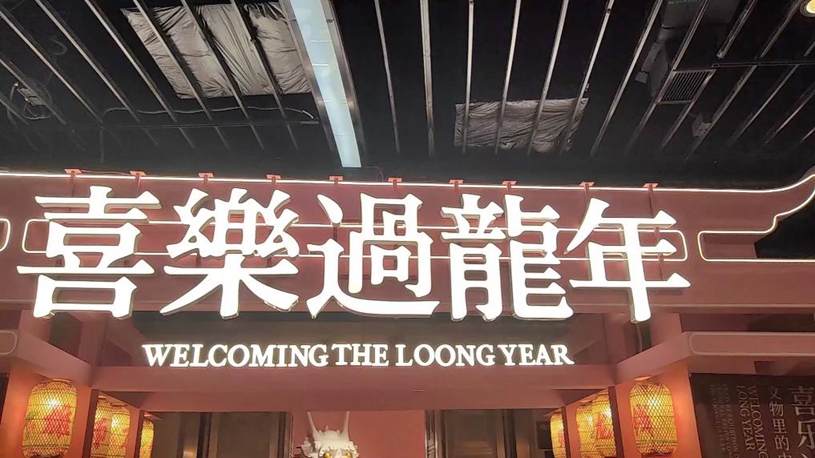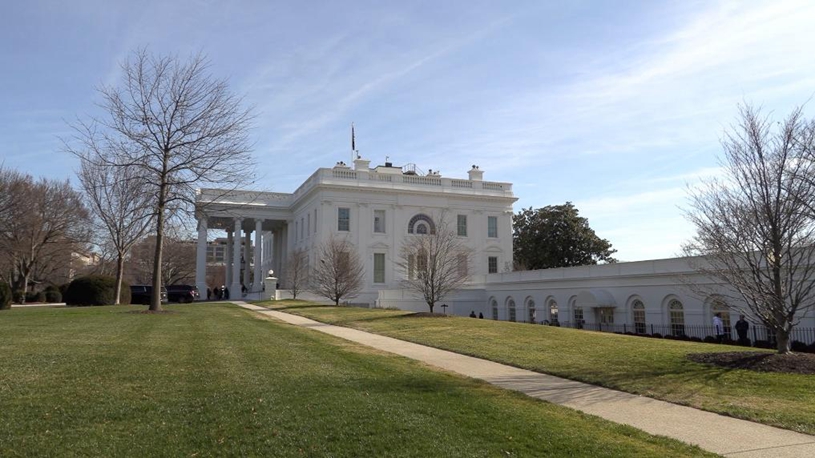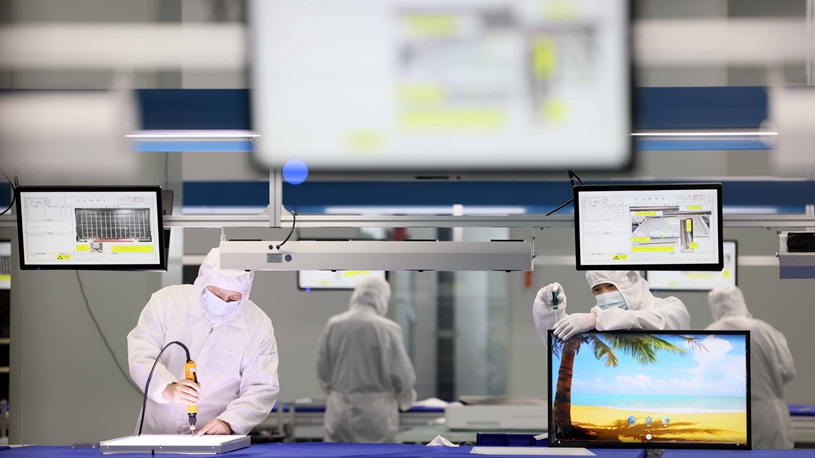by Xinhua writers Zheng Bofei, Luo Fei, Yang Yanbin
GUIYANG, Feb. 9 (Xinhua) -- Dazzling bars, cozy cafes and restaurants adorned with cartoon characters, these are the scenes that offer a vibrant contrast to traditional pastimes of drinking parties and mahjong games. These mixes of old and new create a dynamic atmosphere for Guiyang, the capital city of southwest China's Guizhou Province.
Guiyang is a city built in a mountainous region, featured with intricate road networks. These roads reflect the natural contours of the landscape, adding more bustling energy to the city. Along the banks of the recently rehabilitated Guancheng River lies Taiping Road, a historic thoroughfare that has been revitalized and opened to the public last month, drawing tourists and city residents to visit the rich cultural heritage of the neighborhood.
Tong Wenxi, who runs the company in charge of Taiping Road, returned to Guiyang after four years of studying and living in France. He had always wanted to apply what he had learned to a project that would bring back memories for the city's residents.
"You can always be amazed by the city because there could be cafes or bistros around every corner," he said.
Inspired by other cities known for iconic streets and cartoon characters, Tong and his team envisioned creating a similar spot in Guiyang into a hot spot for young people and photo enthusiasts.
The opportunity arose when the city authorities began to restore cultural and historic sites, and the river's water quality significantly improved after water treatment plants were built upstream. The once abandoned river was once reopened for scenic purposes.
"People in Guiyang often forget that the city housed a cultural center, and it's our duty to restore it," explained Yue Jian, a long-term practitioner of restoring historic buildings and chief designer of Taiping Road.
Taiping Road is situated right near the examination hall compound, where the local imperial examinations were held in the Ming and Qing Dynasties (1368-1911). A location where tens of thousands of ancient scholars in Guizhou changed their lives.
"This place provides an ideal opportunity to preserve the collective memory of past generations," said Tong, who found the city has transformed rapidly and is barely recognizable in recent years.
To achieve this, they reconstructed the three old bridges on the river using modern technologies while preserving the roof style of traditional buildings in Guizhou.
Drawing on the region's intellectual property, they animated rhesus monkeys from nearby Qianling Mountain into popular cartoon characters, which have recently become a sensation for tourists visiting the city.
By allowing business owners to preserve their unique designs and restore historic restaurants and shops, Taiping Road retained its authenticity, making youngsters' prominent touring style of "citywalk" -- which literally means roaming around the city on foot -- more enjoyable.
This revitalization effort has attracted not only young people but also older residents eager to reminisce Guiyang's past, and they would bring their grandchildren and proudly show them around the historic district.
"To our surprise, many of our customers are in their fifties or older, and they often share memories of the old, polluted river and are thrilled by the amazing change," said Fan Yan, who manages a clothing store on Taiping Road.
Meanwhile, Fan's store was projected to generate revenue of one million yuan (around 140,770 U.S. dollars) within its first month of opening, but it exceeded expectations by doubling that amount.
This Chinese New Year, an occasion for family reunion, more visitors, including returnees from other provinces, are expected to flock to the newly reopened street.
"Our goal is to reconnect residents with Guiyang's rich history and heritage," said Yue, whose lifelong dedication to Guizhou has fueled his passion for revitalizing the city's historic core.
As a returnee, Tong plans to bring his mother to visit his newly developed business district over the New Year holiday, when they will join many others who have returned from other places to marvel at the city's transformation.
"Rather than focusing on creating massive, brand-new construction projects, we're now dedicated to restoring the history and memories of past generations," said Tong. ■


